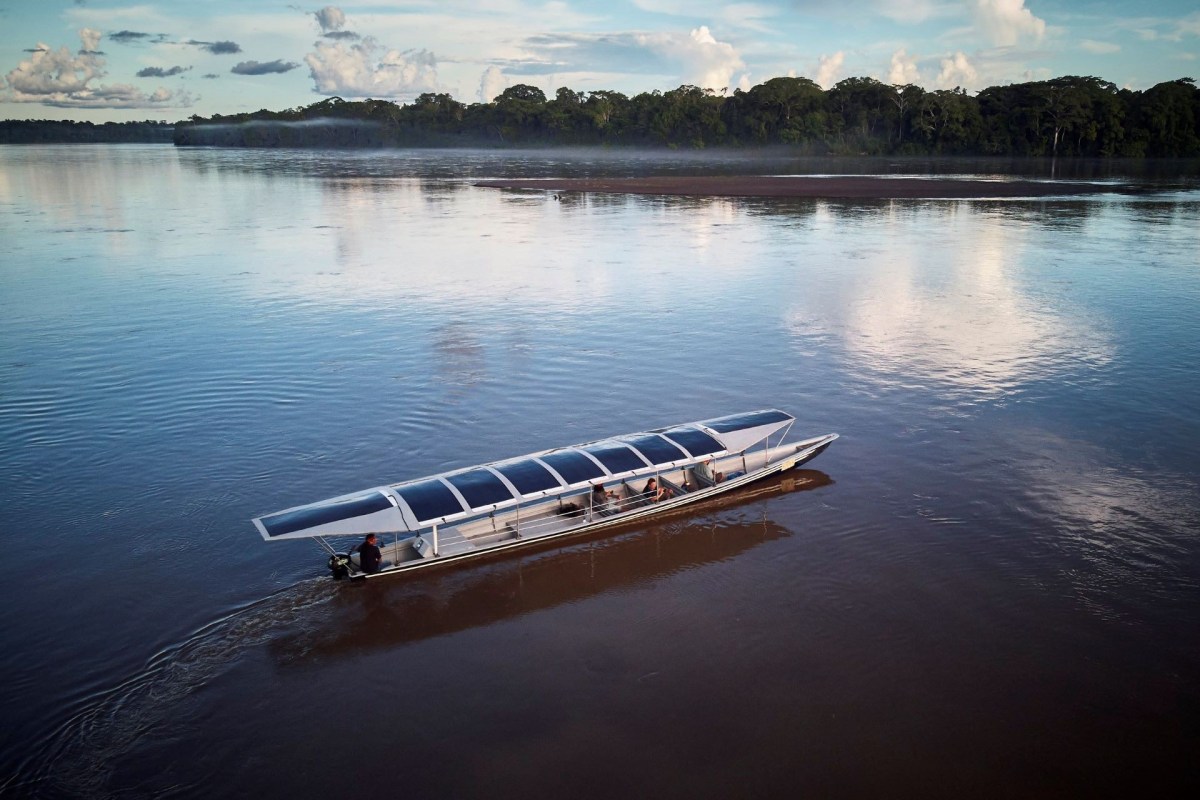When famed "Free Solo" climber Alex Honnold decided to donate one-third of his income to climate solutions, his top priority was funding projects that could increase access to renewable energy.
What better place to do that than the Amazon — home to 15% of the Earth's biodiversity and over 30 million people, most of them indigenous.
"One example of a potential transformative technology is these solar-powered boats we've been doing in the Amazon," Honnold told The Cool Down when asked about some of the Honnold Foundation's most exciting investments. "That's the type of technology that if it scales, and if it works, is useful all around the world."
His foundation's support of an innovative nonprofit, Kara Solar, is transforming the way of life for the 6,000 indigenous Achuar people living in the Amazon River Basin — and creating a model for modernizing boat transport.
"Boat transit in the Amazon is the traditional way of life, and it makes a ton of sense because it keeps you from cutting roads in the rainforest, which becomes a jumping-off point from deforestation and mining," Honnold told TCD.
These boats have traditionally been diesel-powered, and here's the thing about diesel engines: They break, they leak, and they produce pollution that dirties the air and water. Motor-powered canoes also make the community reliant on expensive and harmful imported gas.
In 2015, Kara Solar introduced solar-powered boats to help the Achuar community free themselves of reliance on dirty energy, offering a clean, quiet mode of transportation, reducing their costs on diesel, and creating less potential for deforestation and mining.
The clean energy alternative allows them to participate in travel and commerce, selling their goods at local markets, and it gives them a newfound skill, building and maintaining the boats.
"We started off without technical knowledge, and now there are young people in the communities trained to solve problems," Nantu Canelos, the director of autonomy at Kara Solar, told The Cool Down.
To some in the Achuar tribe, the boats also represent the realization of a dream put forth by elders of their community, who used to speak of a "fire canoe" or "electric fish" that would help the people transport goods up and down the river.
Working with the Achuar people required Kara Solar to build trust with the local community, making clear that there was respect for the inhabitants and their culture.
"The alliance was created through an intercultural dialogue between the morning ceremonies of Wayusa, a tea that we drink every morning before sunrise," Canelos told TCD.
There was initially a mix of "curiosity and caution" from the Achuar people, he said. But "they saw the promise of a 'kara' or 'vision for the future,' and an opportunity to improve our quality of life without affecting the environment," Canelos said.
Now with six solar boats at the disposal of the Achuar people, Canelos and other members of the group are seeing the way of travel transform. Kara Solar is also creating a network of solar canoe ports, connecting nine communities along the Pastaza and Capahuari Rivers.
"Increasingly, solar boats in communities are being used to carry food products, as well as transportation for children to access in their education," he said.
Beyond the boats, the Achuar people have embraced solar energy throughout their community. Everything from lighting to communications has been changed by the technology, and it will undoubtedly have an impact on future generations.
"Children who previously studied by candlelight now do so with electric light, improving their academic performance," Canelos said. "Before we used gasoline generators to power communications equipment like HF radios and satellite internet. Now communication equipment is powered by solar energy."
Canelos believes the model that has worked for the Achuar community can be expanded to other indigenous inhabitants of the Amazon, "providing them with universal access to clean energy and development opportunities with a focus on entrepreneurship in communities."
The Amazon continues to be ravaged by deforestation, driven by the increasing construction of roads to push deeper into the biodiverse environment to build more farming, logging, and mining enterprises.
Kara Solar hopes it can provide an alternative vision for the future of the Amazon. By centering indigenous communities and promoting sustainable and inclusive development, Canelos believes that his organization can strengthen "health, education and economic development indicators in the benefited communities."
This story is part of a partnership between The Cool Down and The Honnold Foundation to share stories about climate solutions and Alex's personal sustainability journey.
Join our free newsletter for easy tips to save more, waste less, and help yourself while helping the planet.









